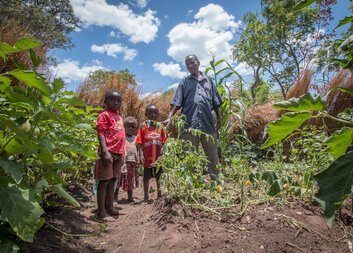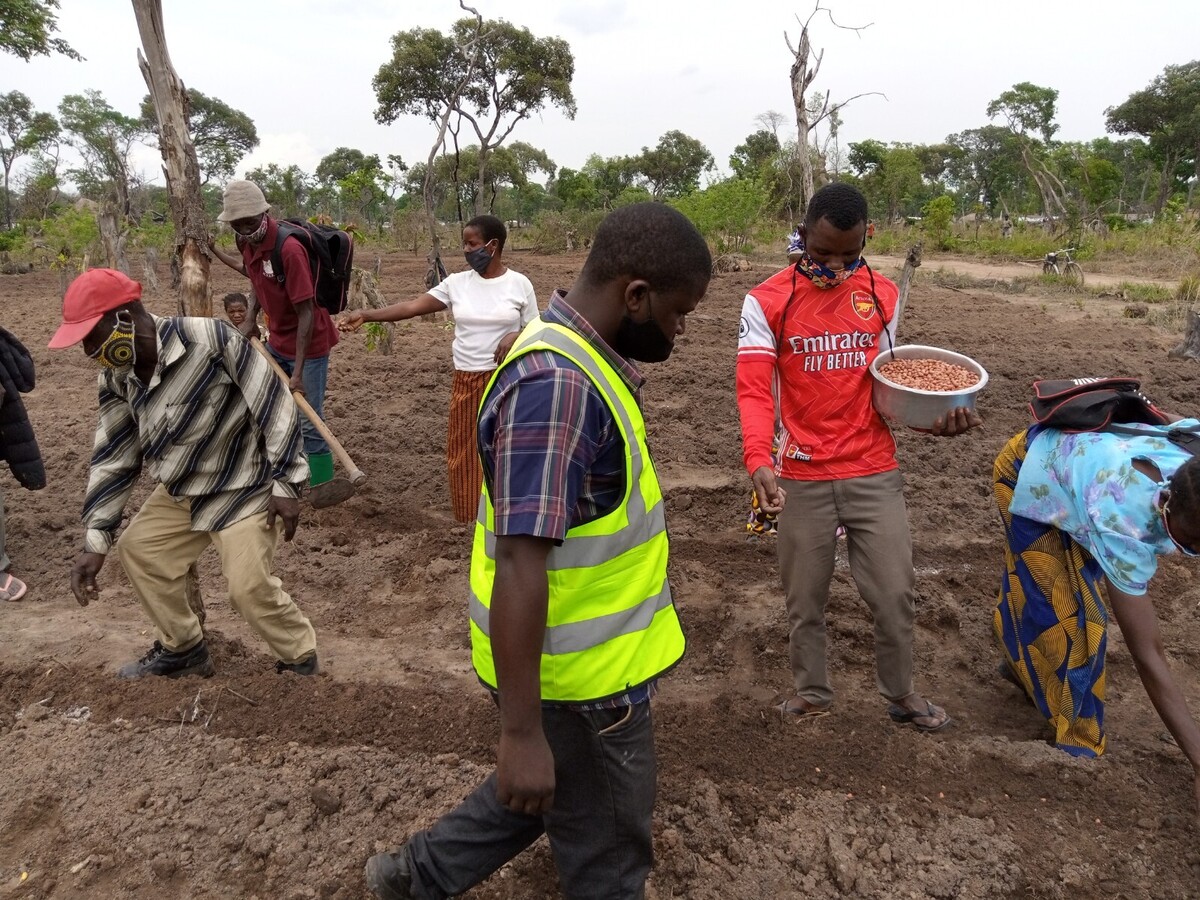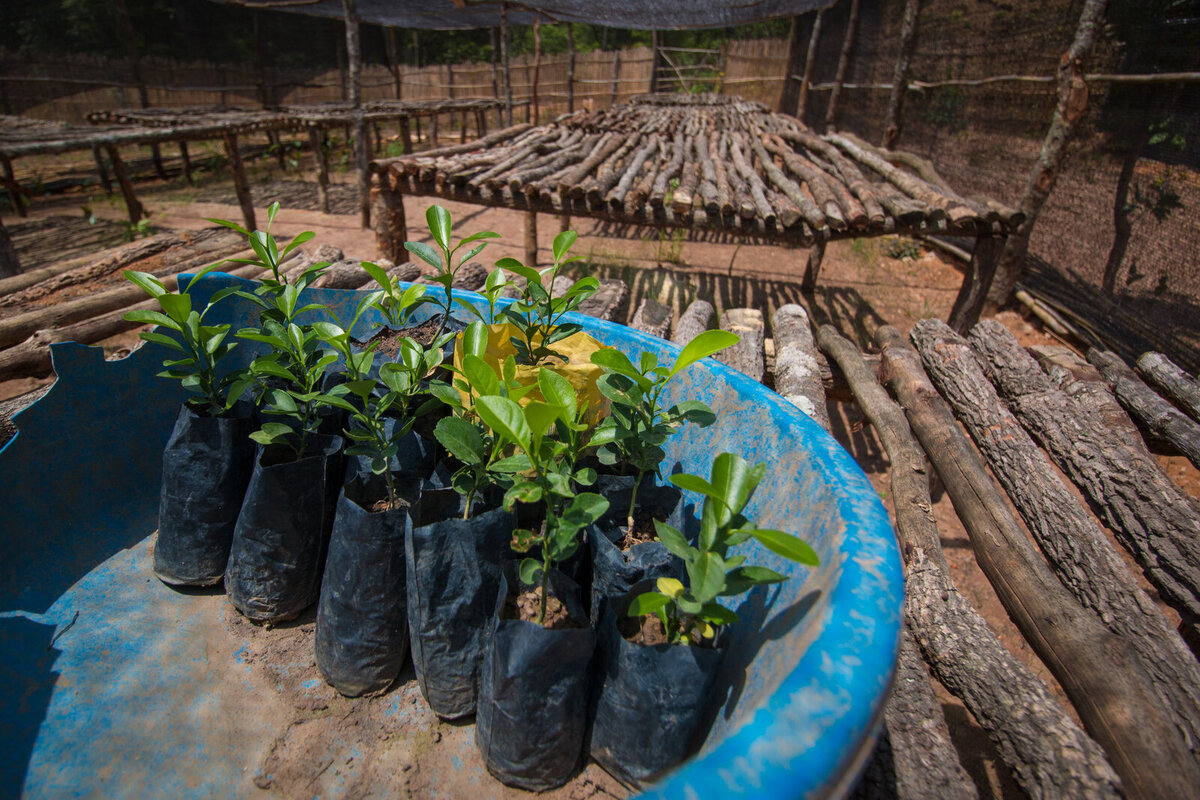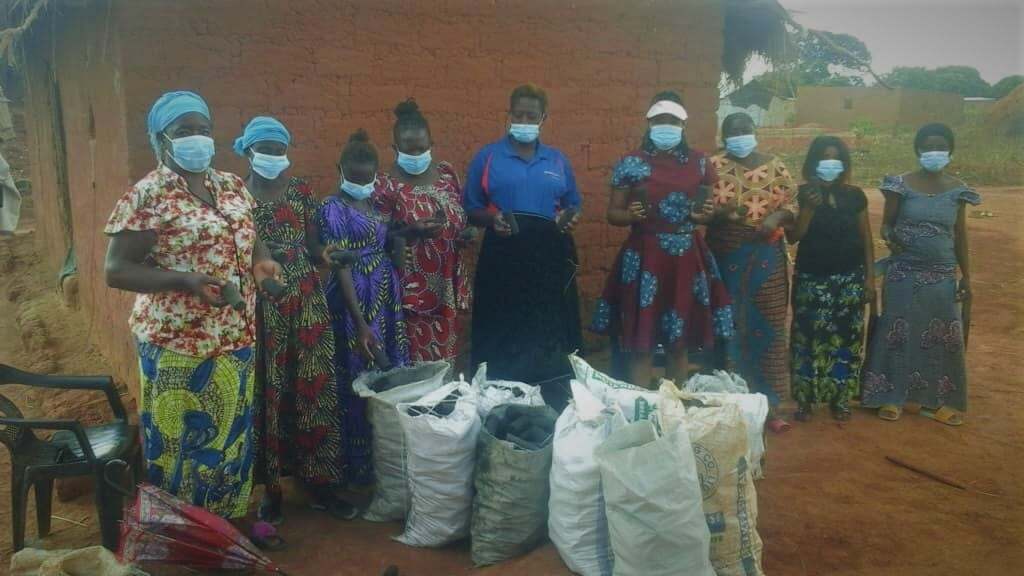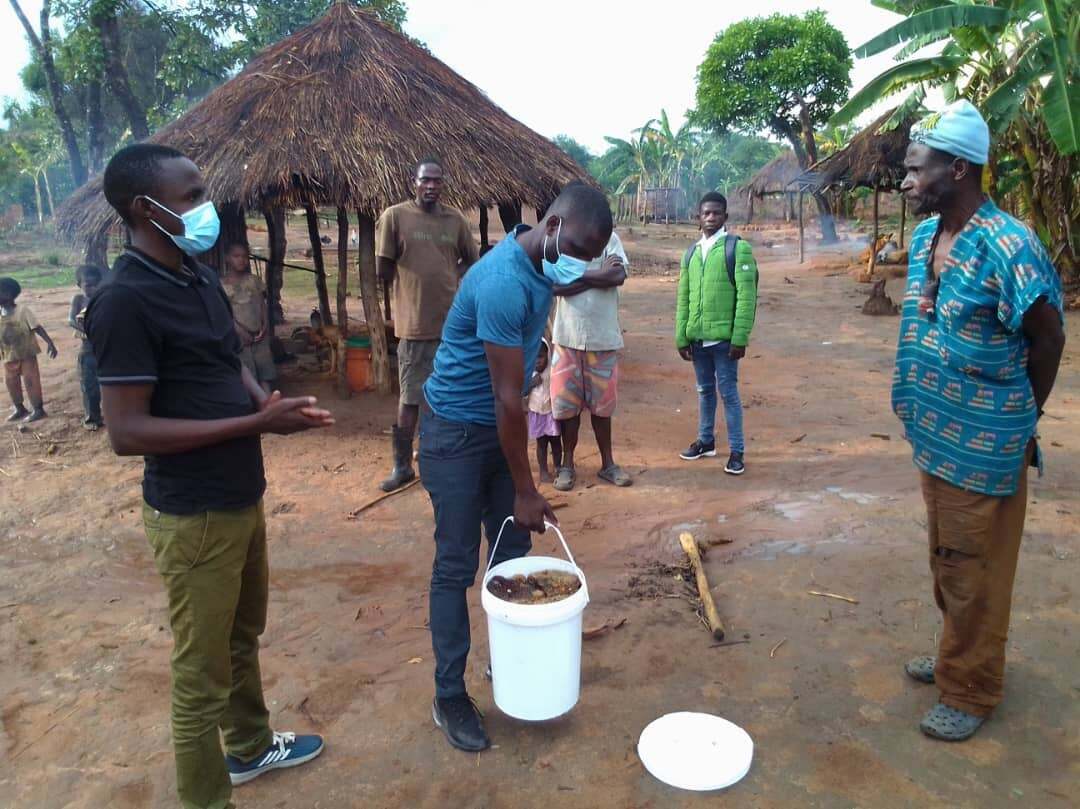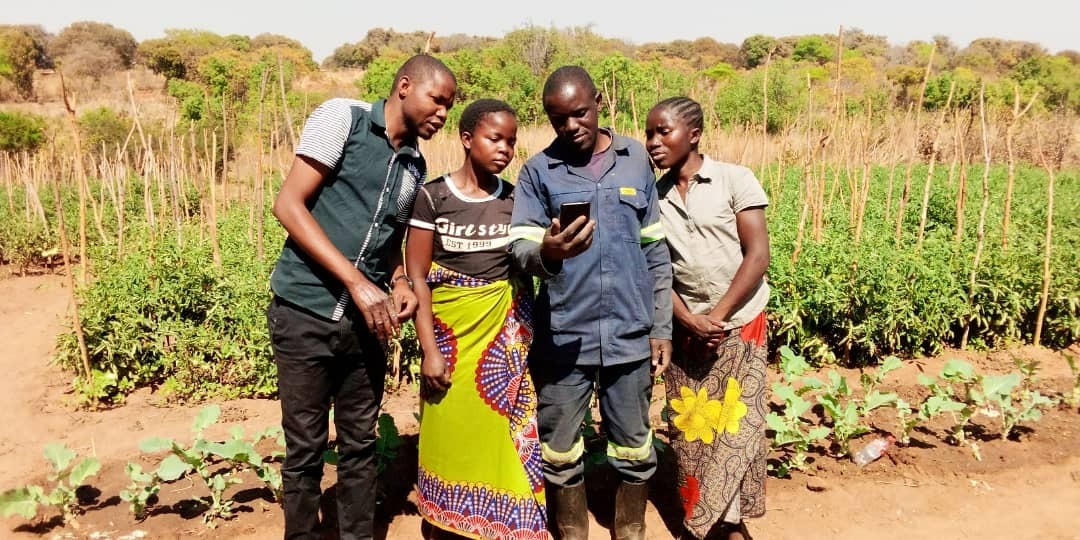Even after many global environmental and climate change campaigns, there is still so much to be done to protect our Earth’s environment. Unfortunately, humans have over the years proven to be the lead cause of climate change issues. We should all take responsibility to protect and preserve our only planet for future generations. Caritas Czech Republic has already begun the fight against climate change. Here are a few ways that Caritas Czech Republic is protecting our planet in Zambia.
1. Conservation Farming
Conservation farming is defined as an agriculture system that prevents the loss of suitable land while regenerating degrading lands. It supports only minimal soil disturbance and helps to keep the soil covered with dead and living plants while at the same time supporting crop diversification of plants.
As Caritas Czech Republic in Zambia, we understand that agriculture, if not practised in a smart and sustainable manner, can be a real burden on our environment because in many cases, farmers cut down trees and use high mechanical pressure to cultivate their land, causing soil erosion.
That is why Caritas Czech Republic in Zambia has been encouraging farmers and ensuring that most of the farmers we support practise the innovative as well as the traditional environmental approaches, such as conservation farming while at the same time putting emphasis on sustainable economic development in the light of climate change, especially with regards to sustainable farming, water and soil management.
The immense impact of environmental interventions on the development of local economies, self-reliance and livelihoods has been realized and appreciated through different interventions.
So far, we have trained 125 farmers in Mantapala refugee settlement in conservation farming of rain-fed crops and supported them with inputs in the 2021 cohort.
In the Mayukwayukwa settlement, farmers were also trained on the advantages of using natural fertilisers and pest killers instead of chemicals that have a great potential of polluting our land.
Through conservation and integrated farming, we are trying to reduce the use of chemicals and also diversify production as opposed to promoting monoculture. This applies to most of all the projects under implementation, such as smart agriculture which supports the use of solar pumps for irrigation to stop gas emissions as well as drip irrigation to stop water wastage.
2. Tree Planting and Seedling Multiplication for climate change
Caritas Czech Republic in Zambia in line with the government of Zambia’s environmental goals has been practising tree planting exercises. So far, over a thousand trees have been planted to help in the fight against climate change.
In 2021, we also trained 50 people of concern in Mayukwayukwa refugee settlement and 50 in Mantapala settlement in climate resilience and supported them with seedlings. The seedlings species were mango, avocado and orange. So far, over a thousand trees have been planted.
According to National Geographic, tree planting has become a way of fighting climate change, but these trees are not enough and we need to plant many more trees in 2022.
3. Promote the use of energy-saving stoves
In an effort to fight climate change and sensitize the communities on the importance of environmental protection, Caritas Czech Republic in Zambia trained people of concerns in green charcoal production and energy-saving stoves in the 2021 cohort.
By the end of last year, a women empowerment group trained in green charcoal production had produced 182 kg of green charcoal. They expressed great interest in producing green charcoal which has high returns, less labour and less effect on our environment.
Last year, we carried out two sensitization meetings in Mantapala both in the host and refugee communities attended by a total of 265 people of concerns, 129 refugees (83 male, 46 female), 136 hosts (92 male, 44 female). Community leaders and charcoal burners were also in attendance.
We also conducted a one-day capacity building training on environmental conservation for 50 selected community leaders and charcoal burners in the Mantapala refugee settlement.
This capacity building training covered messages on the natural environment, the benefits of managing the environment well, the repercussions of poor environmental management and the remedial measures that should be taken.
The 50 beneficiaries who participated in the capacity building, received 3 tree species seedlings, namely avocado, mango and orange.
These sensitization meetings cut through all the other refugee settlements like the Meheba refugee settlement and the Mayukwayukwa settlement with the objective of raising awareness of environmental protection.
4. Beekeeping
Beekeeping has over the years proven to be effective in environmental protection. It does so in four main ways which include promoting pollination, providing food for predators, combating deforestation and maintaining nature’s balance.
So, in 2021, Caritas Czech Republic trained farmers in beekeeping and supported them with inputs for beekeeping across all the three refugee settlements.
In the Mantapala refugee settlement, 90 beekeepers have been supported with 900 beehives and 10 mentors have been trained in beekeeping with elements of self-reliance, sustainability and mentoring to support the honey value chain in the settlement. Market linkages have also been strengthened following the memorandum of understanding signed between Caritas Czech Republic in Zambia and BeeSweet as an off-taker.
In Meheba refugee settlement, the country’s Forestry Department conducted a capacity building training on honey production and market linkages in November 2021, for 136 participants, 47 women and 89 men.
We organized a training on beekeeping and honey production in Mayukwayukwa refugee settlement from 14th to 16th of October 2021, which was attended 15 people. The training topics included but were not limited to bee biology and behaviour, the importance of beekeeping, pollination, beekeeping systems, beekeeping equipment, contraction of bee hives, Apiary management, and hive inspection.
At the end of the training, all 15 participants received asset transfer of protective personal equipment (Gumboots, Sieve, Overalls, Smokers, Gloves, Spoons, Knives, Buckets, Quality control device, scale) and beehives.
5. Supporting farmers with modern technology (Big Terra App)
In 2021, Caritas Czech republic and Big Terra launched a simple mobile app which we call the Big Terra App. This app provides data concerning the weather to the farmers helping them better resist climate change.
So far, a number of farmers have been using the app and are happy with it because it provides them with weather information and other data valuable for small scale farming and larger local agricultural cooperatives.
Restoring hope for a better environment
With all the efforts that Caritas Czech Republic has been putting in the fight against climate change, there is hope for a better future with a clean and safe environment.

